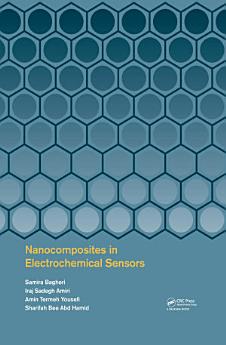Nanocomposites in Electrochemical Sensors
Rreth këtij libri elektronik
Rreth autorit
Dr. Samira Bagheri is a senior lecturer in the Nanotechnology & Catalysis Research Centre, University of Malaya. She received her PhD (2013) from Nanotechnology & Catalysis Research Centre, University of Malaya. Samira’s main research interests are in the areas of carbon nanomaterials, such as carbon nanotubes, graphene oxide and graphene nanosheets, metal oxide nanocomposites advance smart nanohybrids, especially apply in electrochemical sensors, supercapacitors, fuel cells and environmental pollution management.
Dr. I. S. Amiri, received his B. Sc (Hons, Applied Physics) from Public University of Oroumiyeh, Iran in 2001 and a gold medalist M. Sc. from University Technology Malaysia (UTM), in 2009. He was awarded a PhD degree in photonics in Jan 2014. He has published more than 280 journals/conferences and books in Optical Soliton Communications, Nano photonics, Nonlinear Fiber Optics, Quantum Cryptography, Optical Tweezers, Nanotechnology, Biomedical Physics and Biotechnology Engineering
Dr. Amin Termeh Yousefi received his PhD (2015) from Malaysia-Japan International Institute of Technology , University Technology Malaysia . Dr. Amin joined to Kyushu Institute of Technology of Japan (2015) as a research fellow and his research interests are in the areas of carbon nanomaterials, such as carbon nanotubes (CNTs), graphene oxide and graphene nano-ribbon (GNR), carbon based biosensors, Electrochemical sensors, brain-like circuit based CNT-nanocomposite, CNTs based atomic-force microscopy tips, electronic tongue based biosensors, biological haptic finger via CNTs based nanocomposites, field-effect transistor based GNR, nanowire transistors, and brain like signals using CNTs-nanocomposites.
Prof. Sharifah Bee Abd Hamid is the Director of Nanotechnology & Catalysis Research Centre (NANOCAT), a potential National HICOE and UM COE. She completed her DSc in catalysis from University of Namur, Belgium in 1993, whilst MSc in catalysis from UKM (Malaysia) in 1989, and BSc in chemistry from Ohio State University (USA) in 1982. She has unique experience gained from academia and industry. She is a world recognized and respected leader in catalyst and adsorbent with strong proven track record in catalyst and nanomaterial design, petroleum refining and petrochemical processes, oleochemicals, biomass and nanocarbon. She is also a recognized authority in mercury trapping media. Prof. Sharifah has held numerous positions in PETRONAS, Shell, Leverhulme Centre for Innovative Catalysis (United Kingdom), and since 2001 in University of Malaya. Her research interest is in catalysis and nanomaterial. She remains active in catalyst development based on metal oxides, carbon, HPA, Ionic Liquid. Besides petrochemical and environmental caalysis, she focuses her research in biorefining and solar refining with emphasis on technology and catalyst development of sustainable resources from biomass and water, and capitalizing from solar energy. The catalyst and nanomaterial find applications in sustainable energy and chemical synthesis, besides active in water environment mitigation.





